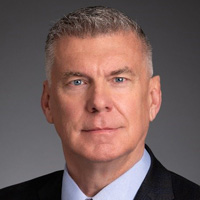Is Your Financial Planner Acting in Your Best Interest?
Not all financial professionals are held to the same standards. Some must meet a higher bar than others. What type of adviser are you working with?


Profit and prosper with the best of Kiplinger's advice on investing, taxes, retirement, personal finance and much more. Delivered daily. Enter your email in the box and click Sign Me Up.
You are now subscribed
Your newsletter sign-up was successful
Want to add more newsletters?

Delivered daily
Kiplinger Today
Profit and prosper with the best of Kiplinger's advice on investing, taxes, retirement, personal finance and much more delivered daily. Smart money moves start here.

Sent five days a week
Kiplinger A Step Ahead
Get practical help to make better financial decisions in your everyday life, from spending to savings on top deals.

Delivered daily
Kiplinger Closing Bell
Get today's biggest financial and investing headlines delivered to your inbox every day the U.S. stock market is open.

Sent twice a week
Kiplinger Adviser Intel
Financial pros across the country share best practices and fresh tactics to preserve and grow your wealth.

Delivered weekly
Kiplinger Tax Tips
Trim your federal and state tax bills with practical tax-planning and tax-cutting strategies.

Sent twice a week
Kiplinger Retirement Tips
Your twice-a-week guide to planning and enjoying a financially secure and richly rewarding retirement

Sent bimonthly.
Kiplinger Adviser Angle
Insights for advisers, wealth managers and other financial professionals.

Sent twice a week
Kiplinger Investing Weekly
Your twice-a-week roundup of promising stocks, funds, companies and industries you should consider, ones you should avoid, and why.

Sent weekly for six weeks
Kiplinger Invest for Retirement
Your step-by-step six-part series on how to invest for retirement, from devising a successful strategy to exactly which investments to choose.
The COVID-19 pandemic created financial challenges for people across the world and led to increased demand for professional financial advice. During the height of the pandemic last April, nearly 8 in 10 CFP® professionals (78%) reported an uptick in inquiries from clients, and 1 in 3 (34%) saw an increase in inquiries from prospective clients.
As more Americans turn to financial planners to better understand their finances and develop holistic financial plans, it is more important than ever that people understand the importance of working with someone you can trust, someone who will put your interests first — in other words, a fiduciary.
But what does it mean to be a fiduciary, and how can you tell if your financial adviser is one?
From just $107.88 $24.99 for Kiplinger Personal Finance
Become a smarter, better informed investor. Subscribe from just $107.88 $24.99, plus get up to 4 Special Issues

Sign up for Kiplinger’s Free Newsletters
Profit and prosper with the best of expert advice on investing, taxes, retirement, personal finance and more - straight to your e-mail.
Profit and prosper with the best of expert advice - straight to your e-mail.
What Is a Fiduciary?
At a high level, the term “fiduciary” means to always put the client’s interest first. When working with a financial adviser, many people assume that’s always the case. However, that’s not always true.
The Securities and Exchange Commission (SEC) applies a fiduciary duty to Registered Investment Adviser representatives (RIAs). In addition to the fiduciary standard, two other common standards are the suitability standard and the “best interest” standard that the SEC introduced for broker-dealers in the 2019 Regulation Best Interest (Reg BI).
The suitability standard requires advisers to provide advice that is “suitable,” benefiting you but not necessarily in your best interest. For broker-dealers, the suitability standard largely was superseded by Reg BI’s “best interest” standard. But even so, the SEC has said that Reg BI is not a fiduciary standard.
These lower standards do not require advisers to place your interests ahead of their interests at all times when providing financial advice. While it is a step in the right direction, Reg BI does not do enough for investors as it draws upon the key principles of a fiduciary standard and best interest principles but does not hold advisers to a true fiduciary standard.
The CFP® Certification Difference
As part of their certification, CFP® professionals make a commitment to CFP Board to act as a fiduciary when providing financial advice. You should want a financial adviser who makes this commitment directly to you. Therefore, whomever you choose as your financial professional, including a CFP® professional, you should consider getting a written engagement that requires them to have a fiduciary obligation to you. It is a common request, and something you can feel comfortable asking for in your initial correspondence before your introductory meeting.
It is important to note that just because a financial planner is a fiduciary doesn’t mean the adviser is free of conflicts of interest. Under the Code of Ethics and Standards of Conduct, CFP® professionals make a commitment to CFP Board to address conflicts of interest that could affect the professional relationship. This means fully disclosing the conflict, obtaining the client’s informed consent, and managing the conflict in the client’s best interests. For example, when providing advice on life insurance, if your adviser receives a commission from the product being offered, the adviser need to disclose that information to you. If a particular insurance product is not in your best interests, then they need to recommend a different product.
Working with a Dually Registered Professional
A dually registered adviser is affiliated with both an RIA and a broker-dealer. Whether the SEC’s fiduciary standard applies depends on whether the professional is acting in an investment advisory capacity. The lower Reg BI standard applies when they are selling investment products as a registered representative of a broker-dealer. When working with a dually registered professional, you can ask them whether they are acting as an investment adviser representative or a representative of a broker-dealer.
There are benefits to working with a dually registered professional as they can develop and implement holistic financial plans. When working with a dually registered representative, be aware of their dual roles and know when the adviser is subject to the SEC’s fiduciary duty rather than Reg BI standard.
Finally, Do a Background Check
It is also important that you do your due diligence and see if your adviser has been disciplined publicly. The Financial Industry Regulatory Authority (FINRA) BrokerCheck Website, SEC Investment Adviser Public Disclosure Database and the Verify a CFP® Professional tool on CFP Board’s website are available to everyone.
Whether you already have an established relationship with a financial planner or are currently searching for one, it is up to you to you to get a written engagement that requires them to have a fiduciary obligation to you.
Profit and prosper with the best of Kiplinger's advice on investing, taxes, retirement, personal finance and much more. Delivered daily. Enter your email in the box and click Sign Me Up.

Kevin R. Keller, CAE, is CEO of the Certified Financial Planner Board of Standards Inc. CFP Board sets standards for financial planning and administers the prestigious CFP® certification – one of the most respected certifications in financial services and one of the few accredited financial services designations. He leads CFP Board to benefit the public by granting CFP® certification and upholding it as the standard of excellence for competent and ethical personal financial planning.
-
 Nasdaq Leads a Rocky Risk-On Rally: Stock Market Today
Nasdaq Leads a Rocky Risk-On Rally: Stock Market TodayAnother worrying bout of late-session weakness couldn't take down the main equity indexes on Wednesday.
-
 Quiz: Do You Know How to Avoid the "Medigap Trap?"
Quiz: Do You Know How to Avoid the "Medigap Trap?"Quiz Test your basic knowledge of the "Medigap Trap" in our quick quiz.
-
 5 Top Tax-Efficient Mutual Funds for Smarter Investing
5 Top Tax-Efficient Mutual Funds for Smarter InvestingMutual funds are many things, but "tax-friendly" usually isn't one of them. These are the exceptions.
-
 Social Security Break-Even Math Is Helpful, But Don't Let It Dictate When You'll File
Social Security Break-Even Math Is Helpful, But Don't Let It Dictate When You'll FileYour Social Security break-even age tells you how long you'd need to live for delaying to pay off, but shouldn't be the sole basis for deciding when to claim.
-
 I'm an Opportunity Zone Pro: This Is How to Deliver Roth-Like Tax-Free Growth (Without Contribution Limits)
I'm an Opportunity Zone Pro: This Is How to Deliver Roth-Like Tax-Free Growth (Without Contribution Limits)Investors who combine Roth IRAs, the gold standard of tax-free savings, with qualified opportunity funds could enjoy decades of tax-free growth.
-
 One of the Most Powerful Wealth-Building Moves a Woman Can Make: A Midcareer Pivot
One of the Most Powerful Wealth-Building Moves a Woman Can Make: A Midcareer PivotIf it feels like you can't sustain what you're doing for the next 20 years, it's time for an honest look at what's draining you and what energizes you.
-
 I'm a Wealth Adviser Obsessed With Mahjong: Here Are 8 Ways It Can Teach Us How to Manage Our Money
I'm a Wealth Adviser Obsessed With Mahjong: Here Are 8 Ways It Can Teach Us How to Manage Our MoneyThis increasingly popular Chinese game can teach us not only how to help manage our money but also how important it is to connect with other people.
-
 Looking for a Financial Book That Won't Put Your Young Adult to Sleep? This One Makes 'Cents'
Looking for a Financial Book That Won't Put Your Young Adult to Sleep? This One Makes 'Cents'"Wealth Your Way" by Cosmo DeStefano offers a highly accessible guide for young adults and their parents on building wealth through simple, consistent habits.
-
 Global Uncertainty Has Investors Running Scared: This Is How Advisers Can Reassure Them
Global Uncertainty Has Investors Running Scared: This Is How Advisers Can Reassure ThemHow can advisers reassure clients nervous about their plans in an increasingly complex and rapidly changing world? This conversational framework provides the key.
-
 I'm a Real Estate Investing Pro: This Is How to Use 1031 Exchanges to Scale Up Your Real Estate Empire
I'm a Real Estate Investing Pro: This Is How to Use 1031 Exchanges to Scale Up Your Real Estate EmpireSmall rental properties can be excellent investments, but you can use 1031 exchanges to transition to commercial real estate for bigger wealth-building.
-
 Should You Jump on the Roth Conversion Bandwagon? A Financial Adviser Weighs In
Should You Jump on the Roth Conversion Bandwagon? A Financial Adviser Weighs InRoth conversions are all the rage, but what works well for one household can cause financial strain for another. This is what you should consider before moving ahead.